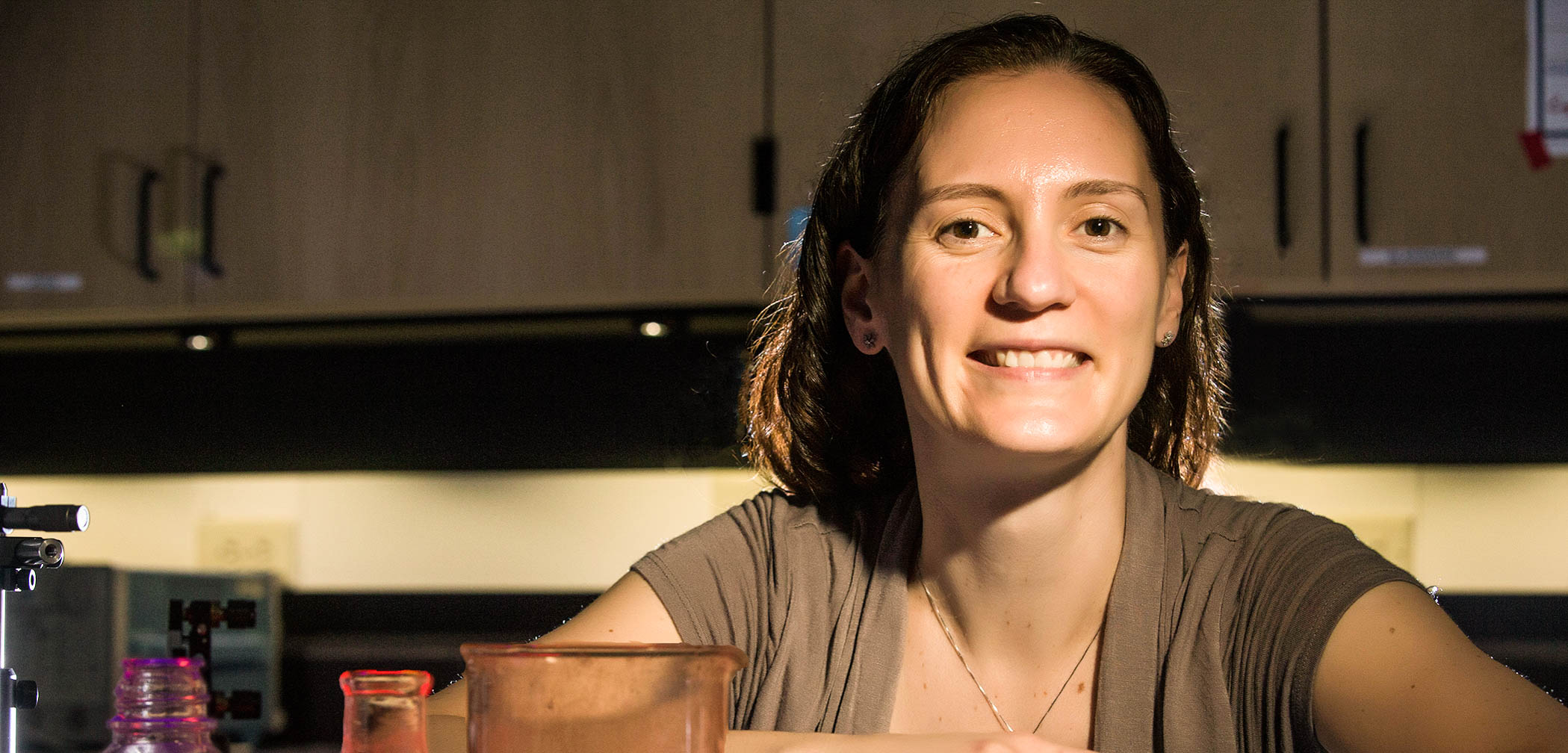Medical Physics Seminar – Monday, November 14, 2016
Optical Metabolic Imaging of Cellular Heterogeneity in Cancer

Melissa C. Skala, PhD (hosted by Dr. Edward F. Jackson)
Investigator, Morgridge Institute for Research, Associate Professor of Biomedical Engineering, University of Wisconsin - Madison, WI - USA
Abstract: Abnormal cellular metabolism is a hallmark of many diseases, yet there is an absence of quantitative methods to dynamically image metabolism with cellular-level resolution. Optical metabolic imaging (OMI) quantifies the fluorescence intensities and lifetimes of the metabolic co-enzymes NADH and FAD using two-photon microscopy. OMI is a label-free, high-resolution, quantitative tool for monitoring cellular metabolism within intact samples. In vivo OMI is sensitive to heterogeneous changes in cellular metabolism induced by clinically relevant anti-cancer therapies in mouse models of cancer. The ability to monitor these treatment-resistant sub-populations of cells in vivo is important for identifying and eliminating the particularly lethal cells that cause tumor recurrence and metastases. We have further developed a “tumor-in-a-dish†organoid platform to rapidly test multi-drug response using OMI. This platform has been validated in mouse models of breast and pancreas cancer, and feasibility has been tested in human tumors with chemotherapies, targeted therapies, and experimental drugs. Importantly, the cellular-level assessment of OMI allows for sub-populations of cells with varying response to drug treatment to be tracked over time, in order to achieve therapeutic effect in all cell populations. This attractive suite of metabolic imaging tools has significant implications for rapid cellular-level assessment of metabolic response to drug treatment (1) in vivo, (2) in high-throughput drug efficacy studies, and (3) as a clinical tool to plan individualized treatment regimens. Therefore, these technologies could greatly accelerate cures for cancer patients.
Biography: Melissa Skala received her BS in Physics at Washington State University in 2002, her M.S. in Biomedical Engineering at the University of Wisconsin, Madison in 2004, and her Ph.D. in Biomedical Engineering at Duke University in 2007. Her postdoctoral training was also in Biomedical Engineering at Duke University, from 2007-2010. From 2010-2016, she has was an Assistant Professor of Biomedical Engineering at Vanderbilt University. Since 2016 she has been an Investigator at the Morgridge Institute for Research, and an Associate Professor of Biomedical Engineering at the University of Wisconsin – Madison.